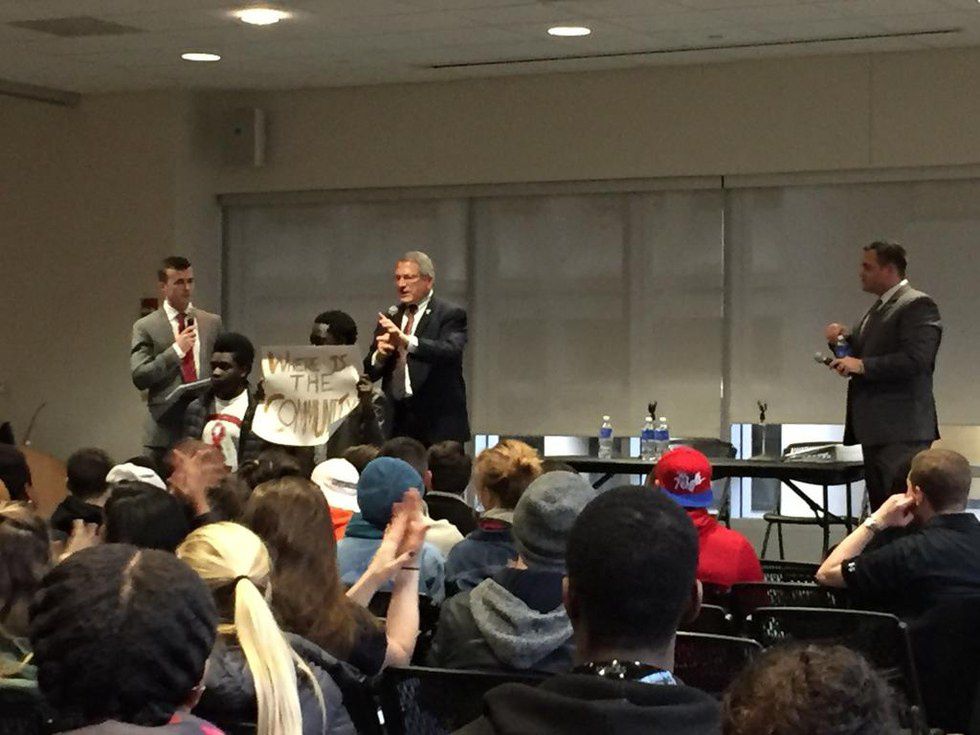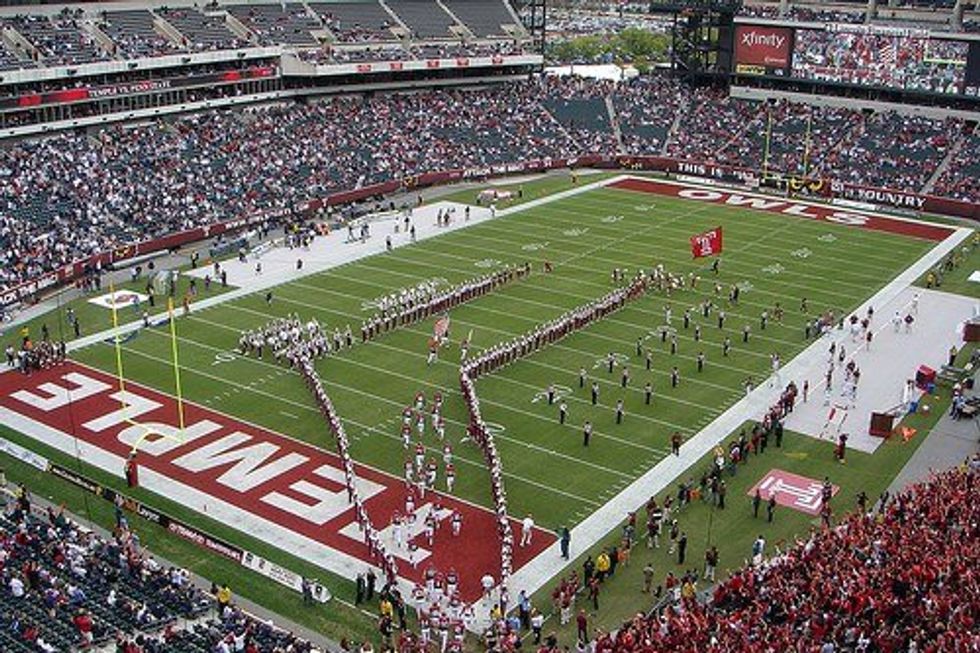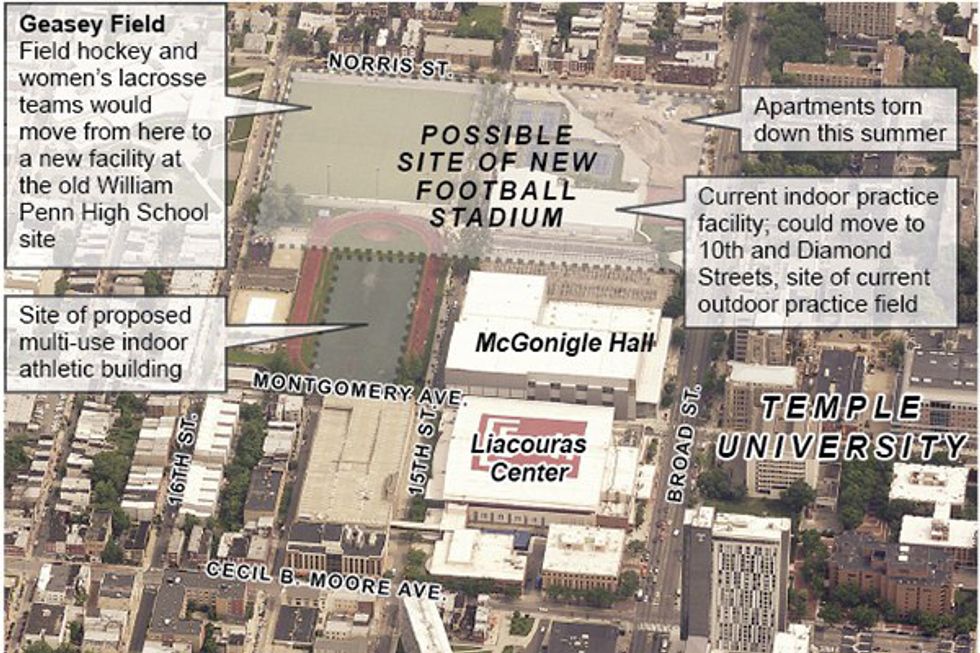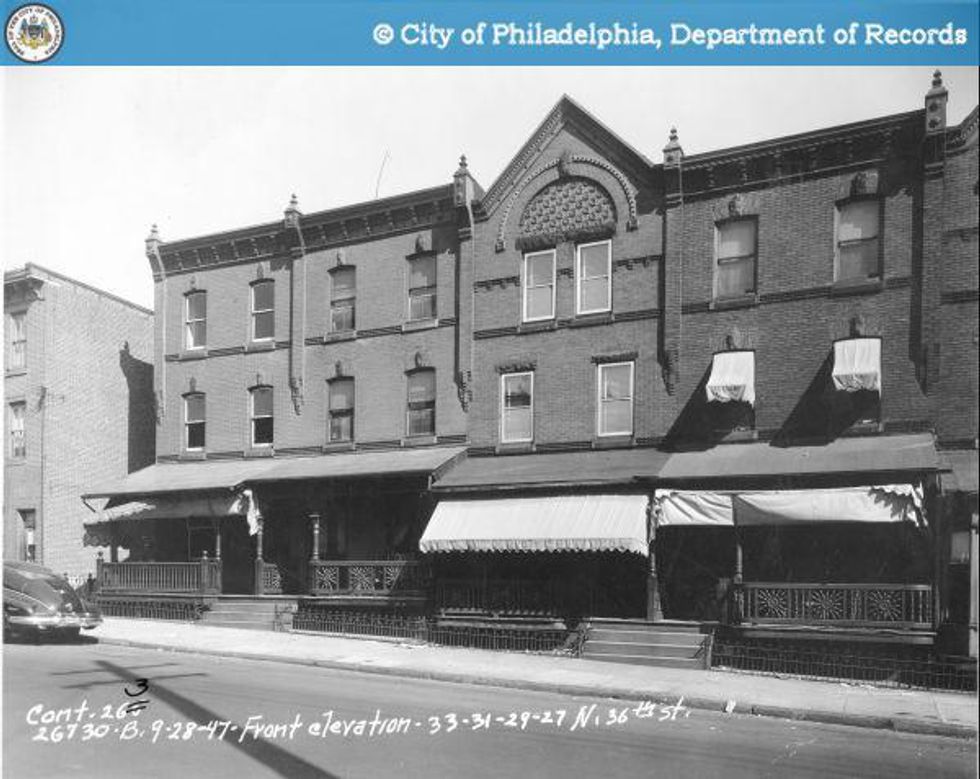This sports season was a terrible year for Philadelphia with teams like the Eagles giving a less than stellar performance. However, the one glimmer of hope for every Philadelphia sports fan was Temple's football team. This season was nothing short of historic for the Owls, drawing national recognition and local pride. With the hot streak, the Temple Owls had, Temple President Neil Theobald and Temple's Board of Trustees sought to establish a better place for the school's football team to play.
Currently, the Temple Owls play in Lincoln Financial Field which is the home of the Eagles. Since 2003, the two have signed on an agreement that allows the Owls use the field for their home games. The agreement mandates that Temple pays $1 million a year to rent the stadium with all profit made from concessions and parking going toward the Eagles. Temple now wants to have its own stadium which it estimates would draw $5 million annually from home games if they had control of their own field. The President and the Board have recently approved the $120 million project for a stadium located behind the Liacouras Center that seats 35,000 people, all without raising tuition of Temple students.
Despite the love for Temple's football team, many people have an issue with this project, including Philadelphia Mayor Jim Kenney. His main concern is for the local residents near the proposed building project. Where will they go if the stadium is built? Even if they aren't displaced he asks, "how would you feel if you lived in a neighborhood where you had young students who decide to party on a Wednesday at 2 a.m. in the morning, where they put trash out haphazardly, or you have a neighborhood full of developers who are just irresponsible?" He also drew some criticism towards the Eagles for being selfish and not being community oriented as the Pittsburgh Steelers who let the University of Pittsburgh Panthers play on their field for little to no cost. Many community members in North Philadelphia, as well as Temple students, voiced concerns about the proposed stadium. Shown here in this video, the subject of Temple's football stadium is a hot button issue for the student body.

This issue is part of a larger one which asks what the relationship between a university and the local community it resides in should be. As one resident puts it, "the University was in the community. Now the University is dictating what the community looks like."
It's not just Temple. Other universities such as Drexel and UPenn have drawn ire from locals as they pour billions of dollars to expand their area into West Philadelphia neighborhoods. As they continue to expand, the surrounding areas draw more businesses to cater to the students with fancy apartments and restaurants. As the rent of the housing skyrockets with 50% of locals who live in West Philadelphia and over 50% of residents in North Philly live below the poverty line, the residents get pushed out. The universities have established programs such as Temple's advisory panels that include local residents, and Drexel's Dornsife Center which helps residents get legal, tax, and financial help from the administration and faculty. However, even with the boards, the universities are the dominant force in the area, as Temple still went forward with the stadium despite community concerns. Suddenly, local residents found themselves unable to afford their housing, the ritzy apartments in their neighborhoods, the expensive food in restaurants popping up, or even use some University facilities like the library, unless a student signs them in, or the gym as they would have to pay a pretty pricey fee since they are not a part of the University.
Black Bottom in 1947, a neighborhood predominately African-American, where many remembered residents would keep their doors unlocked due to community trust.
The community members see this as a fight for survival in a place they have always called home. Low income neighborhoods wanted their areas to improve but not like this, not as their livelihoods are deemed incompatible with the new neighborhood they see developing around them. What was once known as West Philadelphia and Black Bottom is now University City. Once North Philadelphia, now slowly TempleTown. As one culture fades away, another takes its place. Temple may have approved the football stadium, but it still faces opposition from Mayor Kenney, the City Council, students, faculty, and residents. If they can guarantee a healthy balance with the stadium and the community, the construction can start as soon as 2017 when the agreement with the Eagles ends. Temple may have to renew it either way. Whether the stadium gets built or not, the future relationship between university and community just got a little bleaker.























